Malaysians and Cholesterol
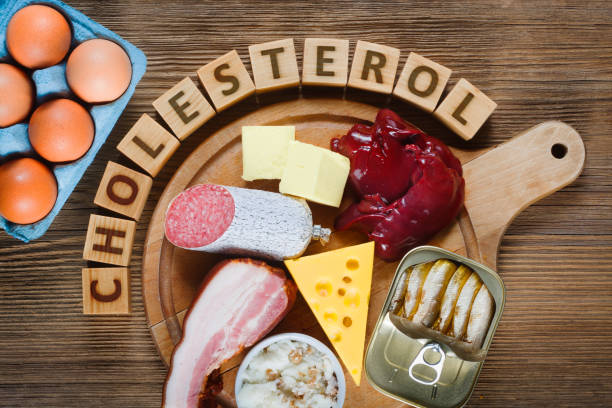
Malaysians and Cholesterol
We Malaysians love food. “Wherever makanan itu bergoreng ke or banyak garam ke , we tak kisah, asalkan benda itu sedap kita makan je lah”. That’s the advantage of having 3 cultures. But do you know that we are also unknowingly consuming foods that have high cholesterol? According to a National Health & Morbidity Survey (NHMS) study published in 2019, four out of ten persons in Malaysia have excessive cholesterol and the sad thing is, most of them aren’t aware of their condition. And we all know that, what we don’t know could harm us in future. So let’s look into what cholesterol is all about and what we can do in order to prevent it.
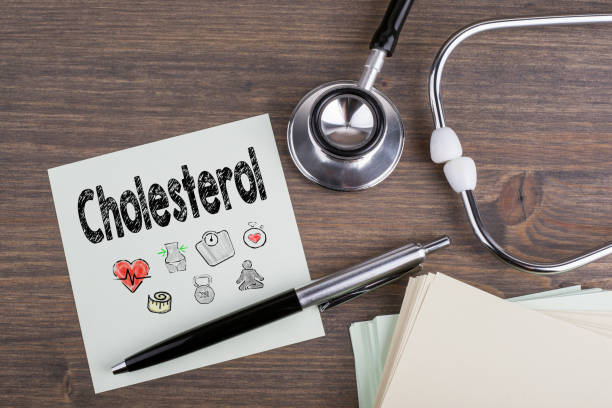
What is Cholesterol
The liver naturally produces cholesterol, which is a fatty molecule. It is essential to develop healthy cells that generate hormones, vitamin D, and chemicals that aid in food digestion. It is accessible in your regular food as well as in your blood and body cells. Most people produce around 80% of their cholesterol in the liver and only receive about 20% of it from their food. High cholesterol in blood, sometimes referred as hypercholesterolemia or hyperlipidemia, is a condition in which the body has an excessive amount of cholesterol and that might be an issue. High cholesterol levels can cause plaque, or fatty deposits, to accumulate inside blood vessels. As a result, certain areas of our body may receive less blood than usual, which may affect our organs. The constriction of the blood vessels can cause severe harm to our heart and brain, which are particularly vulnerable. In Malaysia, 8 million people have elevated total cholesterol levels, which is a factor in the rising daily number of deaths from cardiovascular disease. Heart disease and stroke are two examples of the cardiovascular diseases that are the top causes of death worldwide.
Malaysia is one of the nations that produces guidelines for the treatment of cholesterol. Clinical Practice Guidelines on the Management of Dyslipidemia and the Primary & Secondary Prevention of Cardiovascular Disease, 5th Edition, published in 2017, are commonly followed by medical practitioners in Malaysia.
Dyslipidemia (disordered lipid levels) has been well established as a Cardiovascular (CV) risk factor. It refers to the following lipid levels:
- Total cholesterol (TC) > 5.2 mmol/l
- HDL-C < 1.0 mmol/l (males) < 1.2 mmol/l (females)
- TG > 1.7 mmol/l
- LDL-C levels – will depend on the patient’s cardiovascular risk
The levels are not affected by a person’s age or gender. However, age and gender will influence a person’s overall CV risk, and this will in turn determine the levels of cholesterol (especially LDL) that is acceptable for that particular person. Did you know that there is a specific level that is considered high in cholesterol?
What cholesterol level is considered high?
As mentioned above, A blood test known as a lipid profile that analyzes the levels of different types of lipids in the blood is used to determine cholesterol levels.
One of two measurements can be used to describe the results of a blood test for cholesterol: milligrams of cholesterol per decilitre of blood (mg/dL) or millimoles per litre (mmol/L). According to the Ministry of Health, the ideal level of total cholesterol is (5.1 mmol/L). In addition to total cholesterol, blood tests for cholesterol also evaluate the levels of HDL and LDL cholesterol. Is there only one type of cholesterol? The answer is no!

Types of Cholesterol
When discussing about cholesterol and health, we typically refer to one type of cholesterol, but there are different types of cholesterol, which are known as : Low-Density Lipid, or LDL cholesterol, and High-Density Lipid, or HDL cholesterol, Triglycerides (Blood Fats) and Lp (a) Cholesterol respectively.
Low-Density Lipid, LDL cholesterol or Bad cholesterol – Plaque Builder
LDL can gradually build in the inner walls of the arteries that provide blood to the body when it circulates in the blood at an excessive rate. Plaque can be created when it combines with other chemicals (or atheroma). Plaque is a dense, solid deposit that can constrict the arteries, reduce their flexibility, and reduce the volume of blood they can carry. The term “atherosclerosis” refers to this disorder. Less blood can pass through the artery as it becomes harder and narrower, leading to ischemia, or a deficiency in vital nutrients. A heart attack or stroke may occur if a clot or blockage develops in an artery that is too narrow to supply blood to the brain or heart.
High-Density Lipid, HDL cholesterol or Good cholesterol – The Bad Cholesterol Eater
HDL carries between one-fourth and one-third of blood cholesterol. High levels of HDL are regarded as “good” cholesterol since they appear to protect against heart attacks. The risk of heart disease and plaque accumulation is also increased by low HDL levels (less than 40 mg/dL). In a sense, HDL “eats” up the bad cholesterol by tending to transport it away from the arteries and back to the liver, where it is excreted from the body.
According to some experts, HDL eliminates extra cholesterol from artery plaque, reducing the formation of the plaque.
It’s a little oversimplified to categorize cholesterol as either “good” or “bad” because we actually require a balance of both.
Triglycerides – Blood Fats
The body produces a type of fat called a triglyceride. Increased triglycerides can result from being overweight or obese, diabetes, inactivity, smoking, drinking too much alcohol, or eating a diet rich in carbohydrates (60 percent of total calories or more). High LDL (bad) and low HDL (good) cholesterol levels are common in individuals with high triglyceride levels. High triglyceride levels are common among those who have diabetes, heart disease, or both.
For those with a high risk of developing cardiovascular disease, the optimum cholesterol levels may differ slightly.
The need to monitor total cholesterol and cholesterol ratios even more closely increases when other risk factors are present. In contrast to persons without an elevated risk of cardiovascular disease, those with risk factors, such as a family history of high cholesterol and cardiovascular disease, may be encouraged to begin getting their cholesterol examined on a regular basis rather early in life.
Lp (a) Cholesterol
A genetic variant of LDL (bad) cholesterol is called Lp(a). A key risk factor for the early formation of fatty deposits in arteries is a high level of Lp(a). Although Lp(a) isn’t completely known, it may interact with elements in artery walls to promote the accumulation of fatty deposits.
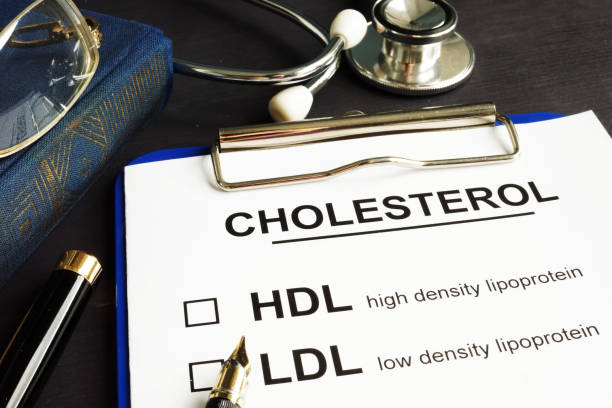
What causes high cholesterol
The likelihood of having high cholesterol varies among individuals. Some of the factors that lead to high cholesterol levels in our bodies are under our control, while others are not. High cholesterol has several major contributors, including:
Age : Due to a loss in our body’s ability to remove cholesterol from our blood, our cholesterol level is likely to increase as we age.
Gender : Men tend to have higher rates of high LDL and low HDL cholesterol than women do, but the differences disappear after menopause.
Family History of High Cholesterol : Some people are predisposed genetically to have high cholesterol as it runs in the family. Familial hypercholesterolemia is the term for this disorder, which is more difficult to treat because it can develop even in people who lead good lifestyles. Inform your loved ones if you or a member of your family is given a diagnosis of familial hypercholesterolemia so they are aware of their risk, and can get treatment right away. It can also help them to avoid developing significant conditions or consequences.
High – Fat Diet : Due to the fact that cholesterol can only be found in animal tissues, those who consume a lot of meat, dairy, and other animal products generally consume more cholesterol than those who consume fewer animal products, and those who follow a strict plant-based or vegan diet will not consume any cholesterol at all. However, despite the fact that consuming plant-based diets are linked to reduced cholesterol, they are not guaranteed to lower your cholesterol because the majority of the cholesterol in our bodies is produced in our livers rather than consumed through food.
Being Overweight : Being obese or overweight is not just a sign of a high-fat, poor diet and sedentary lifestyle, but it is also an important risk factor for high cholesterol. Even if we maintain a good diet and an active lifestyle, being overweight increases our likelihood of having high cholesterol. Additionally, it raises our risk of contracting additional illnesses like type 2 diabetes, high blood pressure, joint pain, and breathing difficulties.
Smoking : The acrolein that we inhale when we smoke cigarettes prevents HDL cholesterol from removing dangerous LDL cholesterol and returning it to the liver for processing.
Pre – Existing Health Conditions : Our cholesterol levels can be impacted by specific underlying medical issues. For instance, type 2 diabetes increases LDL cholesterol while lowering HDL cholesterol. which could put us at risk for heart disease. High cholesterol is frequently associated with xanthelasma, a disorder brought on by an accumulation of cholesterol deposits under the skin near the eyelids. Additionally, liver or renal illness might make high cholesterol worse.
Medication : People using particular drug regimens may be encouraged to have their cholesterol levels checked frequently because some drugs, such oral contraceptives, can raise cholesterol.

Symptoms of cholesterol
As for high cholesterol there are no symptoms that help indicate if you’re having cholesterol. The only method to determine if you have it is through a blood test.
How to Reduce High Cholesterol
We may each take some healthy steps on our own to lower our chance of getting cardiovascular disease and improve our cholesterol levels. Keeping meetings and discussions with our family doctors is crucial to maintaining our health because our cholesterol levels can only be determined through blood testing. In addition to adopting a healthy diet and way of life, some people will also need to take medicine for high cholesterol.
There is no surprise that adopting a healthy lifestyle improves our health; the choices we make to improve our cholesterol levels are all good general health advice. The following are some of the best ways to lower your cholesterol:
Exercise : Increased physical activity alone can enhance many other aspects of our health and wellness, including cholesterol levels. Adults should exercise for at least 150 minutes at moderate intensity each week.
Additionally, exercise raises the blood’s HDL levels, which may aid in removing extra “bad” LDL cholesterol. Combining a healthy diet and exercise has a particularly beneficial impact on cholesterol levels.
High Cholesterol Food :
What to eat & what to Avoid :
According to research, Our cholesterol levels can be lowered by eating certain foods. Products with a high concentration of plant sterols and stanols can prevent our bodies from absorbing cholesterol, whereas others with polyunsaturated fat can actually lower LDL cholesterol. More of these items should be a part of your diet if you want to lower your cholesterol levels:
- High-fibre foods such as brown rice and wholemeal bread.
- Beans and other legumes, which are especially high in soluble fibre which directly lowers blood cholesterol levels.
- Green tea also contains a substance which seems to specifically reduce levels of LDL cholesterol.
- Oats, which contain substances called ‘beta-glucans’ which improve digestion, insulin regulation, and have significantly beneficial effects on cholesterol levels.
- Oily fish, a great source of omega 3 fatty acids and healthy unsaturated fats.
- Fruit and vegetables, for vitamins, antioxidants, plant-based oils and fibre.
- Nuts and seeds for heart-healthy oils and fatty acids.
However, some meals might also cause our cholesterol levels to increase. The following foods may lower our cholesterol levels if we consume less of them:
- Meat and meat-based products like sausages and burgers
- Foods containing palm oil or coconut oil
- Dairy products and foods containing dairy products
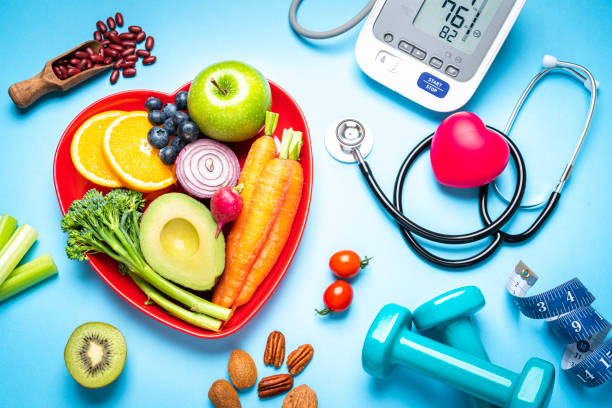
High Cholesterol Medication
There are various efficient drugs for lowering cholesterol levels:
Statins : A type of medication known as “statins” has the best evidence at this period for lowering good cholesterol and providing long-term protection from cardiovascular disease. These drugs all have names that end in “-statin.” Simvastatin is one of the statins that functions best when taken in the evening. Because of their very brief period of action, they must be most active at the same time as our bodies produce the most cholesterol, which is while we sleep. It doesn’t matter what time of day you take some statins because they work for a longer period of time, like atorvastatin.
Most individuals take statins without experiencing any serious side effects, however on rare occasions, statins have been associated with muscle pains that can be so severe that a person is unable to take them. It’s vital to consult a doctor if you’ve been prescribed statins but experience side effects you can’t handle since there may be a treatment option available that will help to prevent you from cardiovascular diseases without the same adverse effects.
Ezetimibe : Ezetimibe is a tablet-form drug that lowers the amount of cholesterol that can enter the bloodstream from the gut. For those who cannot tolerate statins, ezetimibe is typically the second line of treatment because it is not always as effective as statins. For those who are at high risk for high cholesterol and cardiovascular disease, it is nevertheless very beneficial.
Cholestyramine : Even though it is less popular, cholesterolestyramine can aid in lowering blood cholesterol levels. Newer injectable medications and even the dialysis-like LDL-apheresis process are two further medical treatments for high blood cholesterol levels. LDL-apheresis is the removal of cholesterol from blood after it has been filtered via a machine and returned to the body.
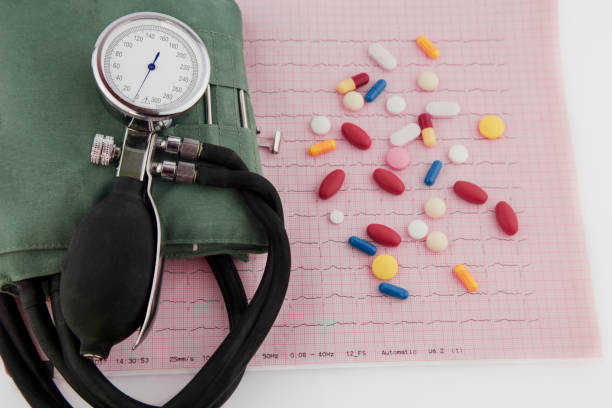
Conclusion
The long-term risks of untreated high cholesterol are well understood and the steps we can take to try and improve our outcomes are also well evidenced. It’s not always easy to make significant lifestyle changes but the rewards of getting healthier are well worth the work; a healthy lifestyle will mean more energy, feeling generally better in mind and body, and will significantly reduce your risk of serious, even deadly diseases.











